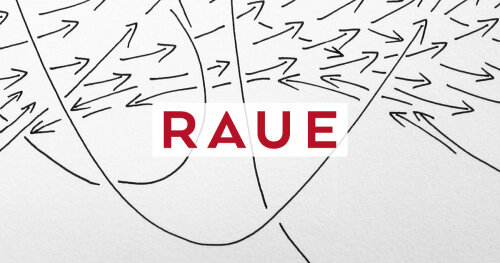Best Foreclosure Lawyers in Germany
Share your needs with us, get contacted by law firms.
Free. Takes 2 min.
Free Guide to Hiring a Real Estate Lawyer
Or refine your search by selecting a city:
List of the best lawyers in Germany
About Foreclosure Law in Germany
Foreclosure in Germany, known locally as "Zwangsversteigerung," is the legal process by which a lender seeks to recover the balance of a loan from a borrower who is unable to keep up with mortgage payments. This typically involves the sale of the mortgaged property at an auction. The process is governed by a combination of national legislation and local procedures, making it important to understand specific regulations that may apply depending on the location within Germany.
Why You May Need a Lawyer
There are several scenarios where individuals might find the assistance of a lawyer invaluable during a foreclosure process. They may require legal help to:
- Understand the foreclosure process and their rights as homeowners.
- Negotiate with lenders to attempt to restructure the outstanding debt.
- Challenge the foreclosure procedure if any legal discrepancies are found.
- Work through legal options to delay the foreclosure process or find alternative resolutions.
- Navigate through any bankruptcy proceedings that may be relevant to the foreclosure.
Local Laws Overview
Foreclosure in Germany is primarily regulated by the German Code of Civil Procedure (Zivilprozessordnung - ZPO) and the Act on Forced Auction and Forced Administration (Zwangsversteigerungsgesetz - ZVG). Key aspects include:
- The process is initiated by the creditor filing a request for foreclosure with the local district court.
- Debtors have opportunities to dispute the foreclosure or seek alternatives, such as restructuring the debt.
- The auction process is public, and properties are usually auctioned at a value determined by the court.
- A redemption period may be available, allowing the debtor to reclaim the property if the outstanding amounts are settled before the auction completes.
- Special rules may apply if the property serves a critical function, like housing for a vulnerable family.
Frequently Asked Questions
What is the first step in the foreclosure process in Germany?
The foreclosure process begins when the creditor files a formal application for foreclosure at the local district court.
Can I stop a foreclosure once it has started?
Yes, borrowers have several options, including negotiating with the lender, seeking loan modifications, or repaying the overdue amount before the auction date.
How long does a foreclosure take in Germany?
The duration of a foreclosure process can vary widely, typically ranging from a few months to over a year, depending on the complexity of the case and whether any disputes arise.
Do I have to move out immediately after a foreclosure begins?
No, you can continue to reside in the property until the foreclosure process is complete and the property is officially sold at auction.
Will my credit score be affected by foreclosure?
Foreclosure can have a negative impact on your credit score, which may affect your ability to secure loans or credit in the future.
Is it possible to buy back my property after foreclosure?
Purchase of the property after foreclosure is possible, but typically requires participation in the public auction and winning the bid.
What happens if the foreclosure sale price does not cover the mortgage amount?
If the sale does not cover the debt, the borrower may still owe the remaining balance unless the lender agrees to forgive the deficiency.
Who conducts the foreclosure auction?
Foreclosure auctions are conducted under the supervision of the local district court where the property is located.
What legal options are available if I feel the foreclosure is unjust?
In such cases, you can challenge the foreclosure in court, ideally with the assistance of a lawyer who specializes in property law.
Can foreclosure proceedings be initiated on rental properties?
Yes, foreclosure proceedings can be initiated on any mortgaged property, including rentals, in Germany.
Additional Resources
For further assistance, consider reaching out to the following resources:
- Local district court: They can provide information on the foreclosure process and current procedures.
- Legal Aid Services: Offer access to legal advice and assistance for those who qualify.
- Consumer Protection Agencies: Can provide guidance and support for financial difficulties and rights as a borrower.
- Financial Counseling Services: These services can provide guidance on managing debts and understanding financial options.
Next Steps
If you find yourself in a situation requiring legal assistance related to foreclosure, consider the following steps:
- Seek consultation with a lawyer specializing in foreclosure and property law early in the process to understand your options.
- Gather all relevant documentation, including loan agreements, payment records, and any correspondence with the lender.
- Evaluate all available options, including negotiation with your lender, to determine the most viable solution.
- Consider financial counseling to assess your overall financial health and explore any potential restructuring of your obligations.
- If eligible, research legal aid services that may provide assistance or representation throughout your case.
Lawzana helps you find the best lawyers and law firms in Germany through a curated and pre-screened list of qualified legal professionals. Our platform offers rankings and detailed profiles of attorneys and law firms, allowing you to compare based on practice areas, including Foreclosure, experience, and client feedback.
Each profile includes a description of the firm's areas of practice, client reviews, team members and partners, year of establishment, spoken languages, office locations, contact information, social media presence, and any published articles or resources. Most firms on our platform speak English and are experienced in both local and international legal matters.
Get a quote from top-rated law firms in Germany — quickly, securely, and without unnecessary hassle.
Disclaimer:
The information provided on this page is for general informational purposes only and does not constitute legal advice. While we strive to ensure the accuracy and relevance of the content, legal information may change over time, and interpretations of the law can vary. You should always consult with a qualified legal professional for advice specific to your situation.
We disclaim all liability for actions taken or not taken based on the content of this page. If you believe any information is incorrect or outdated, please contact us, and we will review and update it where appropriate.
Browse foreclosure law firms by city in Germany
Refine your search by selecting a city.















